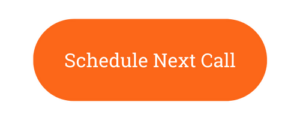Author: Nate
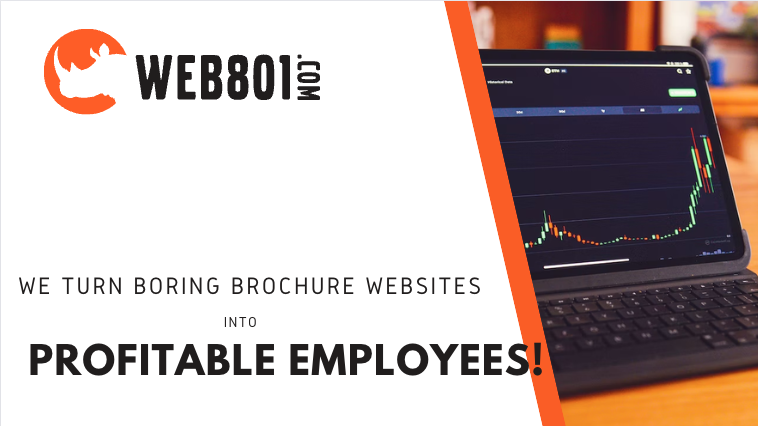
Getting started in ANY business can be challenging.
What do I do first?
How can I use my time MOST effectively?
Should I spend money?
What about ROI?
All good questions.
In today’s presentation, we’ll cover the following topics:
- Why do you need a website as a new REI?
- What helps a Real Estate Investor website be successful?
- What are the low-hanging fruits, the best next steps?
Enjoy!
If you have questions or comments, leave them in the comment section below.
Pre-WEB801 Webinar 2.7.23 by Nate Moller

Welcome to the world of real estate investing.
 If you haven’t already noticed, there’s a LOT to learn.
If you haven’t already noticed, there’s a LOT to learn.
But you’re on the right track: hopefully by now you have a quality, well-built and well structured website.
For many new real estate investors, it’s helpful to have coaches, mentors and resources at your fingertips.
And I strongly recommend you become a part of a community who all have similar goals and intentions in the Real Estate Investing environment.
What can you do to get your REI Website off the ground?
If you want your real estate investment website to work for your business (attract the right traffic, generate qualified leads, start conversations, and ultimately help you get deals), the website needs to be ACTIVE and not DORMANT.
Your website can’t be a business card that just sits on the shelf collecting dust.
Instead, it’s gotta answer questions, prove your validity as an investor, and ATTRACT the ideal clients.
Blogging is one of the best ways to do this.
We’ve compiled a list of the TOP 50 topics you can start blogging about.
To help you digest it, we added some additional ideas to the top 10 topics.
We’ll give more ideas for the other 40 topics in upcoming posts.
Here’s the list to help you get started.
The TOP 50 Real Estate Investment Topics to Blog About (in 2023)
1. The benefits of investing in real estate.
The benefits of investing in real estate can include a steady stream of passive income, appreciation in property value, and potential tax benefits.
Passive income can be generated through renting out the property, and appreciation in property value can occur due to market conditions, or by making improvements to the property.
Tax benefits can include deductions for mortgage interest, depreciation, and operating expenses.
2. How to find and evaluate potential investment properties.
To find and evaluate potential investment properties, investors can use a variety of tools and strategies such as market analysis, property inspections, and financial analysis to determine the potential return on investment.
By analyzing market trends and conditions, investors can identify areas where properties are likely to appreciate in value.
Property inspections can be used to identify any repairs or renovations that may be needed, and financial analysis can help determine the potential rental income and cash flow.
3. The different types of real estate investment strategies.
Different types of real estate investment strategies include fix and flip, buy and hold, and wholesaling.
Fix and flip involves buying a property in need of repairs, making those repairs, and then reselling the property for a profit.
Buy and hold involves purchasing a property and then leasing it out to tenants for a consistent stream of passive income.
Wholesaling involves finding properties at a discounted price and then reselling them to another investor.
4. How to finance a real estate investment.
Financing options for real estate investments include traditional mortgages, hard money loans, and private money loans.
Traditional mortgages are typically obtained from a bank or other financial institution, while hard money loans and private money loans are usually obtained from private investors.
5.The process of rehabbing and flipping a property.
Rehabbing and flipping a property involves buying a property that is in need of repairs, making those repairs, and then reselling the property for a profit.
This type of investment can be a good way to make a quick return on investment if done correctly.
Investors will need to have a good understanding of the real estate market, the cost of repairs, and what the property will be worth once the repairs are made.
This strategy can be risky if the costs of repairs are underestimated or if the market conditions change after the purchase.
6. The process of buying and holding a rental property.
Buying and holding a rental property involves purchasing a property and then leasing it out to tenants for a consistent stream of passive income.
This can be a good way to generate a steady cash flow and build long-term wealth through property appreciation.
To be successful, landlords will need to understand the rental market, be able to find and screen tenants, and be able to manage and maintain the property effectively.
7. How to find and screen tenants for a rental property.
To find and screen tenants for a rental property, landlords can use various tools and methods to find and screen tenants.
These include background checks, credit checks, and interviews.
This can help the landlord determine a tenant’s suitability and the likelihood that they will be able to pay the rent on time and take care of the property.
8. How to properly manage and maintain a rental property.
Properly managing and maintaining a rental property includes tasks such as collecting rent, handling repairs and maintenance, and enforcing lease agreements.
It also includes keeping up with the laws and regulations related to being a landlord.
Proper management and maintenance can help ensure that the property remains in good condition, that tenants are happy, and that the landlord is able to generate consistent income.
9. The tax benefits of real estate investing.
Real estate investments can provide tax benefits such as deductions for mortgage interest, depreciation, and operating expenses.
These tax benefits can help investors save money and increase the return on their investment.
However, it is important to note that tax laws and regulations can change, and investors should consult with a tax professional to understand how these benefits may apply to their specific situation.
10. How to exit a real estate investment.
Exiting a real estate investment can involve selling the property, refinancing, or renting the property.
Selling the property can provide a lump sum of cash, but it also means that the investor will no longer have ownership of the property.
Refinancing can provide cash and allow the investor to continue owning the property.
Renting the property can provide a steady stream of passive income, but it also means that the investor will continue to be responsible for the property and will have to manage it as a landlord.
Other Topics Worth Considering for a Real Estate Investor Blog
11. How to use leverage in real estate investing.
12. How to build and maintain a real estate investment portfolio.
13. How to find and work with a real estate agent.
14. How to analyze cash flow and return on investment.
15. How to use market analysis to identify profitable investments.
16. How to find and use real estate investment tools and software.
17. How to create a business plan for a real estate investment company.
18. How to network and build a team of real estate professionals.
19. The impact of interest rates on real estate investing.
20. The impact of the economy on real estate investing.
21. How to spot and avoid common real estate investing mistakes.
22. How to use technology to improve real estate investing.
23. How to use crowdfunding to finance a real estate investment.
24. How to use self-directed IRA to invest in real estate.
25. How to invest in real estate with little or no money down.
26. How to invest in real estate with a small budget.
27. How to invest in real estate as a beginner.
28. How to invest in commercial real estate.
29. How to invest in real estate development.
30. How to invest in real estate through REITs.
31. How to invest in real estate through partnerships.
32. How to invest in real estate using options.
33. How to invest in real estate using lease options.
34. How to invest in real estate using owner financing.
35. How to invest in real estate using virtual assistant.
36. How to invest in real estate using online marketplaces.
37. How to invest in real estate using online platforms.
38. How to invest in real estate using online tools.
39. How to invest in real estate using online resources.
40. How to invest in real estate using online education.
41. How to invest in real estate using online communities.
42. How to invest in real estate using online networks.
43. How to invest in real estate using online software.
44. How to invest in real estate using online systems.
45. How to invest in real estate using online calculators.
46. How to invest in real estate using online databases.
47. How to invest in real estate using online maps.
48. How to invest in real estate using online analytics.
49. How to invest in real estate using online market data.
50. How to invest in real estate using online market trends.
Please note: this list isn’t exhaustive.
The specific topics for blog posts can vary depending on the focus and goals of your real estate investment business.
Conclusion
You have to start somewhere.
You have to get momentum.
These topics will help you get started.
Leave a comment below on which topics you’re going to blog about and then share your post so we can all go comment!
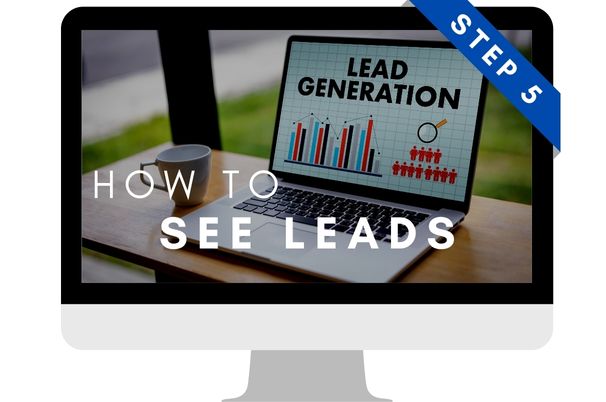
Getting qualified leads on your website is probably one of the most important steps in this process.
The video today will walk you through how to see leads on your website, both when you log into the website and via email.
Assignment: If you have questions about this process or need additional information, leave a comment in the comment section below.
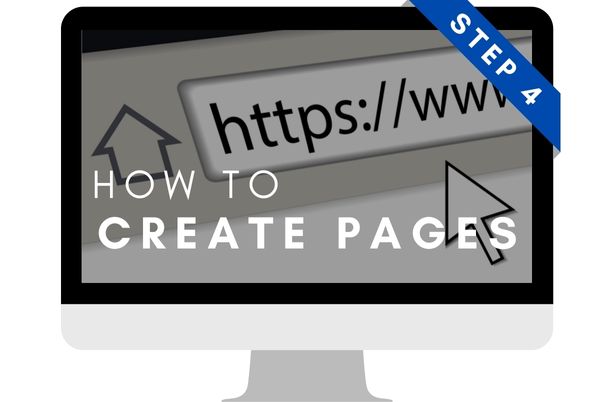
In this video, we will go over how to create new pages on your website, also known as cloning.
We’ve built many different pages on your website. Each page has its own unique layout, look, and feel.
We’ve made it possible to clone these pages and add new pages to your website.
ATTENTION: Just because you add a new page to your website, does not mean it will show up in the top navigation.
ASSIGNMENT: Leave a comment below when you’ve completed this task. If you have questions, ask away!

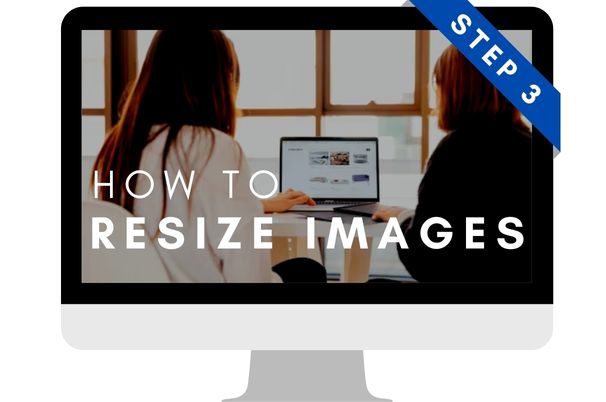
You’re making great progress!
This video will walk you through the step-by-step process of changing images on your website.
Changing images can give your website its own unique look and feel and customize the overall experience for visitors.
Part of changing images on your website will be knowing where to get royalty-free images, and also knowing how to resize them, so they fit in the appropriate way on your webpage.
You can use Canva for FREE to resize images or test out the Pro Version.
Assignment: Leave a comment below when you’ve completed this step. Ask questions too!

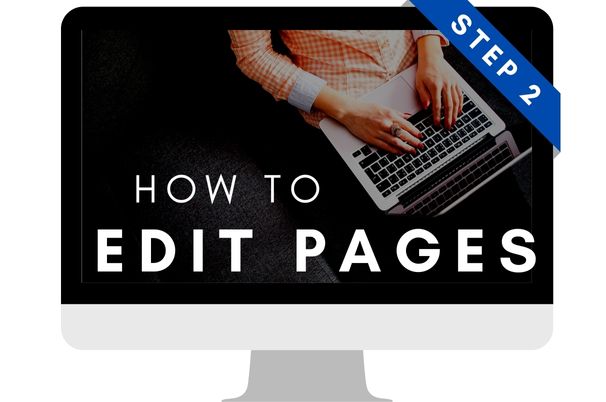
This video will take you through the step-by-step process of editing pages on your website.
All the pages can be edited and, as the video will show, some sections will be easier to edit than others.
If you have questions, leave them in the comments below.
Remember: we do a daily back up of your website, so the worst thing that could happen if you make edits and break something is that we update it from the day before and all will be well 🙂
ASSIGNMENT: once you’ve completed this step, leave a comment below and/or ask a question!

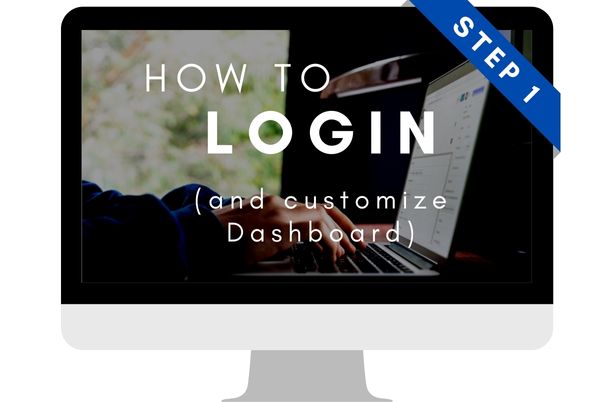

In today’s video I want to talk about FIVE questions you should ask yourself when buying a new domain name for your business.
Getting a new domain name can be scary: it’s like naming your first child.
What if you get it wrong? What if it’s awkward? What if the name doesn’t fit the baby or in this case your new business?
So to help you alleviate some of that fear, I’m gonna go over some questions you can ask yourself as you consider the new domain names for your business.
QUESTION: #1: Does the domain represent what I do in someway?
The first question you should ask is does it represent what I do in someway?
In the past if I purchased a domain name with a rich keyword phrase, for example, Attorneyspanishforkutah.com, everyone, including Google, would know what this website is about.
And most likely, you would rank for that keyword phrase in Google fairly quickly.
But nowadays, according to Google’s John Mueller, a keyword which domain name does not have as much weight, and in fact, is not that valuable.
John says:
“Just because a website has a keyword in its domain name doesn’t mean that it’s more relevant than others for that keyword.
In short, you don’t need to put keywords in the domain name.”
About three years ago my initial domain name for my business with mollermarketing.com. I started with that domain name back in 2006 and it seemed applicable for what I was doing at the time.
My last name and Marketing.
But as I have grown and expanded I realized something: that domain name is not very brandable.
So I changed it to Web 801. This domain name very strongly represents what I do but also is brandable.
Web, I do things on the web and 801, which is the ZIP Code of where I live.
Including at least a partial keyword phrase in your domain name can be helpful to answer this first question: does the domain name represent in someway what I do as a business? But again, it’s not going to help you rank quickly in search.
Another important factor in making a domain name brandable is the domain suffix. This means GET THE .COM
Yes, there are other domain types now like .jobs, .net, .org, and even .travel, but according to Google, these custom suffixes don’t help. Here’s what they said:
“This is a really common question that comes up for the new top-level domains.
“In short, no. You don’t get a special bonus like that from having a keyword in your top-level domain.
“Anecdotally you can see that by searching naturally for anything that interests you.
“I’d venture a guess that the top results don’t have those keywords as a domain ending. Often it’s not even in the URL at all. That’s by design.”
If you’re having a hard time finding a domain with the .com, keep looking. Don’t settle for the .net or other suffixes – people won’t remember them and will usually type the .com first anyway.
QUESTION #2: Is the domain name EASY to SPELL & REMEMBER?
The next question to ask is is the domain name easy to spell & remember?
There are a variety of things I like to avoid when answering this question.
A domain name with a word that could be spelled multiple ways is confusing.
How would you spell the word two? Wrong it’s TWO, wrong it’s TO, wrong it’s TOO, If you speak spanish it could be TU, The correct answer is there isn’t a RIGHT WAY.
You get my point.
If I can spell it multiple ways somebody else will too and you will lose traffic to your website because of it. Another thing to consider in answering this question is what if my domain name has multiple of the same letters in it?
For example, theelephantitle.com
Apologies if this is actually a domain name, I just made this up but you see my point.
The elephant, does that have one E or two? Elephant title same thing? If someone can spell it wrong they will.
One other thing to address with this question about if my domain name is easy to spell relates to how long the domain name is.
If my domain name is three words or more, it’s probably too long. Sometimes three words will work but the shorter the domain name is the better.
The first domain name I ever purchased was called clogon.com.
At the time I didn’t realize this was such a great domain name, my website was about clogging, a form of tap dance. And I ended up selling clogging shoes on my website. The domain name ClogOn was easy to spell, easy to remember, short – only two words, and very brandable.
One client domain name used to be beautifulweddingannouncements.com. Yes, this domain name definitely represented what they offer. But, it was not easy to spell. Even though I knew the domain name I often times misspelled it.
Eventually I convinced the client to change the domain name to shopbwa.com.
They didn’t have to change their business name; in fact, if you go to the website now Beautiful Wedding Announcements is what shows up at the top as their logo. But the domain name is now much easier to spell, easier to remember, and it still represents their business because of the acronym BWA. They can associate the domain name with their logo and business and it all ties together.
And if you type in beautifulweddingannouncements.com it will still redirect to shopbwa.com so they don’t lose traffic for people that knew the domain name in the past.
Keep your domain name short, and easy to spell, and you will get more traffic and more deals.
QUESTION #3: Would I put this domain name on a t-shirt, hat, hoodie, sticker, etc?
Another question to ask that goes right along with the other two is what I want to put this domain name on a T-shirt, hat, hoodie, sticker, etc.?
This was one of the main reasons I changed my domain name from Moller Marketing to WEB801. Moller not only is spelled variety of different ways but people would miss pronounce it: Moeller Miller Mueller you name it. Plus putting that on a T-shirt or hat was a little bit long so eventually I did research and found WEB801 by accident.
Not only is WEB801 something I’d put on a billboard or hat but it makes people curious, “I wonder what that is…” and then they come to the site.
Having a brand able domain name, something you want to put on a hat, is an important factor in domain name selection. And it ties in with the other things we’ve discussed so far.
QUESTION #4: Are you in this for the long-haul?
The fourth question to ask yourself when purchasing a new domain name for your business is are you in this for the long-haul?
There are MANY places you can buy a domain name – but I recommend two as the best ones to work with.
- GoDaddy
- Google Domains
Don’t buy your domain name at a hosting company like BlueHost or HostGator or something like that because often times they will tie in the domain name with your hosting and then if you want to change hosts your website may go down.
It’s best to buy a domain name at a place like GoDaddy or Google domains because that’s what they’re focused on for the most part.
When you buy a domain name, they will give you options on how long you want to register the domain name for. Six months, one year, two years, three years, five years, 10 years. Maybe you don’t have to go all out and do 10 years but usually I will do three years or five years.
According to Search Engine Land:
“Google isn’t specifically saying domain registration length doesn’t matter, just that it’s not all that important in the Big Picture. Several years ago, I interviewed Jon Glick, a former member of the Yahoo search team, and he said the length of a registration does matter, but it’s just one signal, one potential flag.”
In other words, if search engines can see that your domain name is only register for six months or one year, you may not get much traction at all.
Start with at least a 2 year registration.
QUESTION #5: What if I didn’t follow these other suggestions? Can I change the domain?
The final question is a great one – can I change my domain if I find a better one?
The answer is ABSOLUTELY YES.
If you’re just starting a business, there are a LOT of decisions you have to make, and I highly recommend MAKING a decision as to falling into the “paralysis by analysis” and doing nothing.
Buying a domain name is one of those decisions it’s better to just make, get things moving, and then if you later find a better domain, you can always update the domain.
Will it affect rankings in search – maybe a bit, but a good web development company will know how to set up 301 Redirects which will help you not lose traffic.
Will you lose traffic to your prior domain? NO, not if you’ve set things up correctly.
Sure, changing your domain may lead to other updates, like logo for example, but it’s not the end of the world and it’s better to get started than go back and forth indefinitely.
ONE BONUS SUGGESTION:
Avoid buying a premium domain as your first every purchase.
What are thoughts?

I saw this short video post today on LinkedIn and it made me think of all my Homeschooled Family:
How does this apply to YOU?
“Are you playing at the level you’re capable of?”
“Are you the best version of yourself?”
Are you ready to take your REI game to the next level?
What’s that going to take?
I’ve shared with some of you the mission statement I made when I was just out of college at my first real sales job.
I. SUCKED. AT. SALES!
I hadn’t made a single sale in my first 6 weeks, and I was getting frustrated.
The Temptation to Give Up
At that point I really had two option:
- Give Up!
- Push Forward!
Giving up is easy.
I can blame my situation on others.
I can say it just wasn’t the right time.
I can switch directions over and over again (a workaround for giving up).
Look at my friend Tarek’s story:
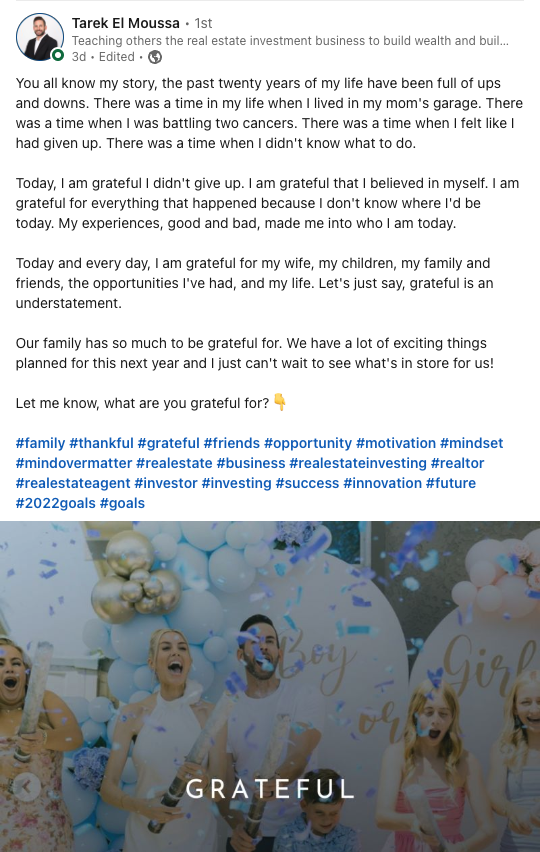
He had SO many points in his life where he could have given up.
But he didn’t.
And through each trial there was a new level of success!
What’d I Choose?
Like Tarek, I chose to push through.
I wasn’t going to give up or quit.
So I talked to the VP of Sales at this company, Aaron.
I asked him what I should do.
I was afraid to set any big goals for fear I wouldn’t hit them.
He heard me out and then gave me some of the best advice that I’ll never forget.
“Watch those who are doing what you want to be doing. What’s working for them? How do they operate? What numbers are they hitting?
“If THEY can do it, so can YOU!”
He went on to tell me that setting a goal was only for me.
If I felt it was too big (or too small), I could always change it.
So I took his advice.
The Moller Mission Statement
I found out what the best sales person was doing, what his numbers were, and then I started monitoring. This monitoring caused me to create my first mission statement.
I am the best salesman at [put in your company name] with a 6 week average of over [specific amount of money] in sales.
I am making [specific amount of money] per week which is helping me achieve and exceed my six month goal of [specific amount of money] by June 30, [year] and [specific amount of money] by Dec. 31, [year].
My keys to success have been confidence, focus, overcoming all fears, hard work, persistence, patience, and expecting to succeed, along with listening to the best, taking effective notes which I apply immediately, setting specific goals that I review daily, and focusing on getting 3 new sales per day, clients that need the products we are offering.
I never worry about things I can’t change. I focus only on what I do have control over: attitude, knowledge, skills and work ethic.
I’m happy to be running my business successfully and will continue to develop multiple streams of income. These multiple streams of income will help me achieve my life goal: [specific long term goal].
What’s crazy is this WORKED!
I read (and eventually memorized) the mission statement out loud 3 times a day.
At first I didn’t really believe it.
But the more I read it and rehearsed it and reminded myself of what it was saying, the more it BECAME ME!
My initial goal was to hit $40,000 in commissions for my first year and I hit that almost to the penny.
The next year I DOUBLED that mark.
And the rest is history.
What’s Your Mission Statement
So here’s the challenge:
1. Review my mission statement
2. Re-write it in your own words.
3. Post it here for the community to see.
4. Start reading it morning, noon and night.
5. Document your progress.
You can do this!

